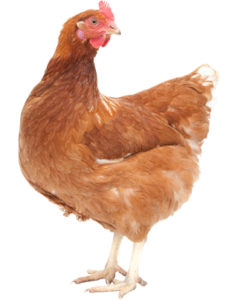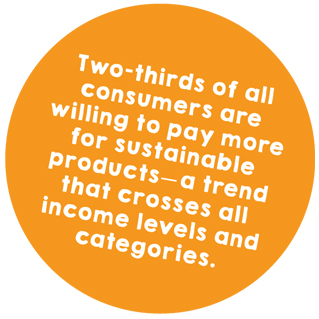 Cage-free eggs, free-range chickens, pasture-raised beef—the hyphenated superlatives for fresh meat and poultry products today can rival that of any padded college essay. But what do they mean? And why are consumers flocking to products with such labels in droves? The simplest explanation is that they’re part of the larger whole food and back-to-nature movement. The longer explanation is, of course, a bit more complicated.
Cage-free eggs, free-range chickens, pasture-raised beef—the hyphenated superlatives for fresh meat and poultry products today can rival that of any padded college essay. But what do they mean? And why are consumers flocking to products with such labels in droves? The simplest explanation is that they’re part of the larger whole food and back-to-nature movement. The longer explanation is, of course, a bit more complicated.
First, a few quick definitions. While there is no official regulation on the term, sustainable foods are generally considered those that are produced in a way that protects the environment, human health and animal welfare. The pasture-raised and free-range labels are part of the sustainable movement. Humanely-raised foods typically have a narrower focus on animal welfare—ensuring chickens and cows have adequate access to the outdoors and aren’t kept in crowded pens, for example. Cage-free is one element of producing humanely-raised eggs.
What often stands out from these definitions is an aspect of morality. But proponents of the practices, including the American Society for the Prevention of Cruelty to Animals, say the benefits go well beyond the moral implications. For example, humanely-raised chickens are typically healthier than “factory-farmed” chickens, and less likely to spread disease. Pasture-raised beef can help improve soil quality and reduce a farm’s reliance on chemical fertilizers thanks to their ability to spread natural fertilizer (manure). Pasture-raised animals also tend to be lower in calories and saturated fat than their grain-fed counterparts—a boon to human health.
The push for more sustainable and humanely-raised options is in part due to the back-to-nature movement, but also more broadly a result of consumer demand for greater transparency from manufacturers. This demand has already begun to cause major shifts in the food supply. For example, California voters recently passed a proposition requiring egg-laying chickens be given more space and better treatment. In response, many egg manufacturers have made the switch to full-on cage-free habitats.
 Faced with similar pressures from consumers, several big-name CPGs and restaurant chains, including Nestle, McDonald’s and Denny’s, have pledged to move to 100% cage-free eggs across their operations over the next several years. The mainstream shift to humanely-raised meats is moving more slowly, but there is progress. For example, many top U.S. pork producers, including Smithfield, Tyson and Hormel, are taking steps to remove gestation crates (cages that immobilize breeding pigs) from their operations.
Faced with similar pressures from consumers, several big-name CPGs and restaurant chains, including Nestle, McDonald’s and Denny’s, have pledged to move to 100% cage-free eggs across their operations over the next several years. The mainstream shift to humanely-raised meats is moving more slowly, but there is progress. For example, many top U.S. pork producers, including Smithfield, Tyson and Hormel, are taking steps to remove gestation crates (cages that immobilize breeding pigs) from their operations.
Not only are sustainable and humanely-raised foods better for the environment, animal health and our own health—consumers are also often willing to pay more for them. According to survey firm Nielsen, two-thirds of all consumers are willing to pay more for sustainable products—a trend that crosses all income levels and categories.

